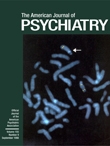Attributional Style and Depression in Pregnant Teenagers
Abstract
Objective: Study 1 evaluated whether pregnancy is a stressful life event for teenagers and is associated with depression for teenagers with a pessimistic attributional style but not for those with an optimistic attributional style. Study 2 replicated unexpected findings from study 1. Study 3 evaluated whether pregnant teenagers with a pessimistic attributional style will be more depressed after childbirth than optimistic pregnant teenagers. Method: In study 1, 122 pregnant and 96 nonpregnant teenagers completed questionnaires assessing depression and attributional style. In study 2, 43 pregnant teenagers and 49 nonpregnant teenagers completed the same questionnaires. In study 3, subjects from studies 1 and 2 were contacted by mail and asked to complete the same questionnaires; 63 (38%) did so.Results: In studies 1 and 2, pregnant teenagers with a pessimistic attributional style were less depressed than those with an optimistic attributional style and the nonpregnant group. In study 3, pessimistic teenagers experienced a higher level of depression than nonpessimistic adolescents following childbirth.Conclusions: Pregnancy may serve to protect pessimistic teenagers from experiencing depression. The subsequent demands of motherhood may remove any protection from depression afforded by the pregnancy. The experience of depression being relieved by another pregnancy may be a previously unidentified risk factor for repeated pregnancies in teenagers. Am J Psychiatry 1998; 155: 1227-1233



